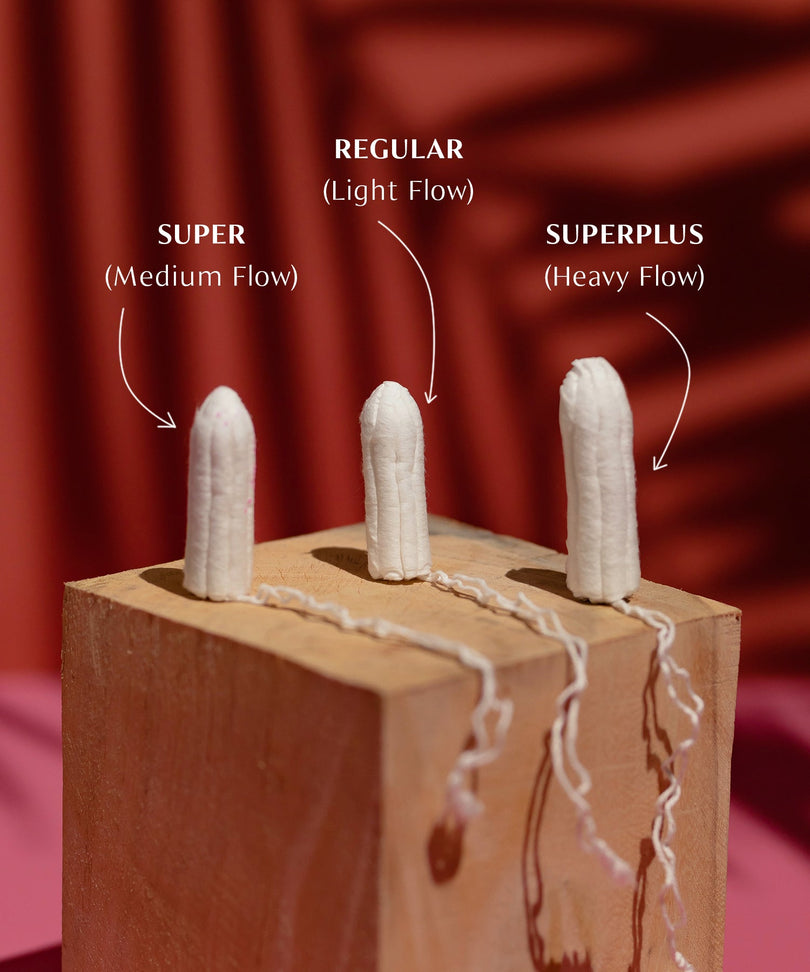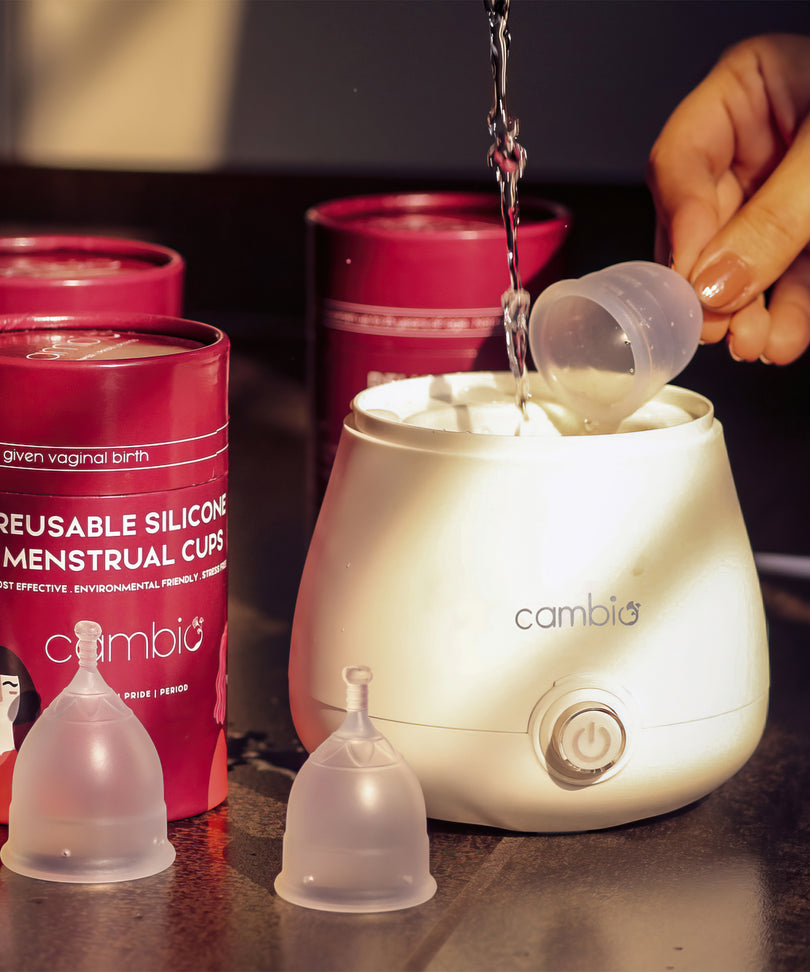Yeast infection - Types, Causes and Symptoms
Yeast infections are a common but often misunderstood medical condition that affects millions of people every year. Also known as candidiasis, yeast infections occur when there is an overgrowth of the fungus Candida albicans in the body, often in the vaginal area. While yeast infections may seem insignificant, they can cause various uncomfortable symptoms, including itching, burning, and a thick white discharge.
Yeast infections occur most often in women due to the vagina's warm, moist environment and the presence of the fungus Candida albicans, which is normally present in the vagina.
There are three distinct types of yeast infections: vulvovaginal, oral, and skin.
- Vulvovaginal yeast infections are the most common, affecting about 75% of women at some point in their lives.
- Symptoms of vulvovaginal yeast infections can include a white vaginal discharge, which may be thick and clumpy, as well as itching and burning in the vagina and surrounding areas.
- Oral yeast infections, also known as thrush, can cause white patches or irritation in the mouth and throat.
- Symptoms of oral yeast infections may also include a thick, white coating on the tongue and difficulty swallowing.
- Skin yeast infections, such as jock itch, can cause itching and redness in the groin area, under the breasts, and between the toes.
Yeast infections occur when there's an imbalance in the ecosystem of fungus and bacteria naturally present in the body, particularly the vagina. This imbalance can be caused by factors like hormonal changes (pregnancy, menstrual cycle), antibiotic use (which wipes out good bacteria), weakened immune system, uncontrolled diabetes, or even tight-fitting clothing that traps moisture.
Several factors can increase the risk of developing a yeast infection, including pregnancy, menopause, diabetes, and the use of antibiotics or steroids. It's important to consult with your healthcare provider if you suspect that you have a yeast infection to receive a proper diagnosis and treatment plan.
Also read - Can a UTI delay your period?
Relation between Yeast Infection and Reproductive Health
Yeast infections, or candidiasis, are a type of infection that affects primarily the vagina, vulva, and urethra. They are caused by the overgrowth of Candida, a type of fungus that exists naturally in the genital area. The main species that causes yeast infections in women is called Candida albicans. Candida albicans normally exist in small numbers in the vagina, but when its numbers multiply too much, it can cause symptoms such as itching, burning, and discharge that bring discomfort in the sensitive regions.
There isn't a lot of research directly connecting yeast infections to late periods. Most likely, yeast infections aren't the main reason for menstrual irregularities. However, it's always good to stay updated on any new findings or expert opinions on this topic.
Also read - Yoga for irregular periods
Does Yeast Infection affect Periods?
No, yeast infections do not directly cause a delay in the menstrual cycle. Yeast infections occur in the vagina, which is unrelated to the hormonal changes that regulate the menstrual cycle. While the symptoms of a yeast infection can sometimes resemble those of a period, they are separate bodily functions. The menstrual cycle is controlled by hormones that are produced in the ovaries, while yeast infections are caused by the overgrowth of yeast in the vagina.
Also read - How to delay your periods?
How can Yeast Infection Indirectly Cause a Delay in Periods?
Yeast infections, also known as candidiasis, do not directly cause a delay in periods as they occur in the vagina, which is not directly related to menstrual cycle. However, some medications used to treat yeast infections, such as antifungal creams and oral medications, can indirectly cause a delay in periods.
These medications may interfere with the normal hormonal balance in the body, which can affect the production of progesterone and estrogen, leading to a delay in the next menstrual cycle. Additionally, some medications used to treat yeast infections can also cause uterine cramping and bleeding, which may further complicate the timing of a menstrual cycle.
It's important to note that these delays are typically temporary, and once the medication is stopped, the menstrual cycle should return to normal. However, if you are experiencing unusual symptoms or are concerned about a delay in your period, it's always a good idea to consult with a healthcare provider.
Also read - Can stress delay your period?
Can Yeast Infection Delay the Start of Your Periods?
No. A yeast infection typically occurs in the vaginal region, and although it may cause symptoms such as itching, burning, and white discharge, it does not directly delay the start of a menstrual period. However, if left untreated, a yeast infection could cause other health problems that may indirectly impact hormonal balance, which could lead to a delay in the start of a period.
Can Thrush Delay Your Period?
No. Thrush is the common term for candidiasis, which is a type of yeast infection that affects the mouth and throat. Candida albicans, the most common species of yeast, is the most common cause of thrush. While thrush can occur at any time, it can cause symptoms such as a white tongue, painful swallowing, and a change in taste. It is unlikely that thrush alone would directly delay the start of a menstrual period. However, if left untreated, thrush could lead to other health problems that may indirectly impact hormonal balance, which could lead to a delay in the start of a period.
Also read - Tips to maintain good menstrual hygiene
How to Treat Yeast Infection?
Treatment for yeast infections typically involves the use of antifungal medications, which can either be taken orally or applied directly to the affected area.
When diagnosed with a yeast infection, it is important to follow the instructions of your healthcare provider regarding the type of medication to use, the dosage, and the length of treatment. Treatment for a vaginal yeast infection typically includes the use of topical antifungal creams or suppositories that are applied directly to the affected area several times a day for several days.
What Precautions to Take to Prevent Yeast Infection during Periods?
To prevent yeast infections during menstruation:
- Wear loose-fitting, breathable underwear
- Use a menstrual cup or a tampon to absorb menstrual blood, and change them every 6-8 hours.
- Use unscented period products and avoid using perfumed soaps in the vulva area.
- Avoid douching, and only clean the vulva area with water and a gentle soap.
If a yeast infection occurs during menstruation:
- Consult with a healthcare provider for treatment advice
- If possible, avoid using internal menstrual products, like tampons, as they can increase the risk of infection
- Wear loose-fitting clothing and use a pad to absorb menstrual blood.
- Use anti-fungal creams or suppositories as directed, and continue treatment until the infection is cleared.
- Remember to always follow the advice of a healthcare professional when it comes to the treatment and prevention of yeast infections during menstruation.
Also read - Maintain a healthy reproductive system
Consultation
If symptoms persist or worsen, it's important to consult with a healthcare professional who can assess the symptoms and recommend the appropriate treatment. Your healthcare provider can also answer any questions you may have about yeast infections and provide guidance on preventative measures.
It's important to note that some medications and medical conditions can exacerbate yeast infections, so it's important to be open and honest about all medications you're taking and any medical conditions you may have. Additionally, if you suspect you may have a yeast infection, it's important to follow the instructions of your healthcare provider regarding the type of medication to use, the dosage, and the length of treatment.
Remember, by consulting with a healthcare professional, you can take proactive steps to prevent and manage yeast infections and ensure your overall health and wellness.
Read more
Why do I Poop so Much on My Period?
How to Get Periods Immediately to Avoid Pregnancy?









